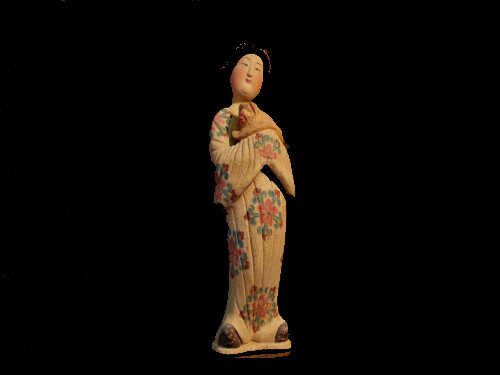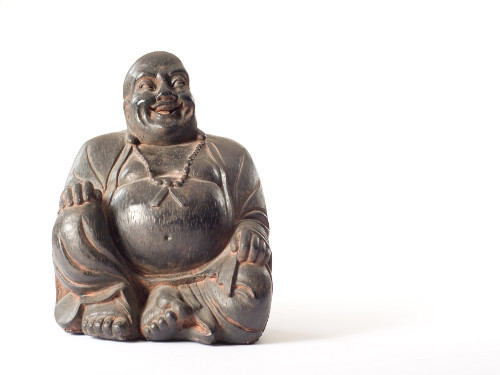6 文化 Culture: the Chinese concept of beauty
Traditionally in China, fair skin, small feet and looking a bit plump were regarded as marks of beauty.
Foot binding was a custom practised on young girls and women for about a thousand years until it ended in the early twentieth century. It was a very cruel practice that involved breaking the arch of the foot, folding the toes with great force into the sole of the foot and fixing everything in position with bandages. It took approximately two years of bandaging and re-bandaging the foot to achieve the desired effect. A foot that measured between three and three and a half inches from toe to heel was regarded as the ideal and was known as sān cùn jīn lián 三寸金莲 (lit. three-inch golden lotus). While foot binding could lead to serious infections, possibly gangrene, and generally caused lifelong pain, women did it because at the time it was considered that a woman with big feet would have difficulty in finding a husband.
As for skin colour, even today many Chinese people prefer to have fair skin and go out of their way to keep out of the sun. However, tanned skin is increasingly desirable for its associations with a healthy lifestyle and having the means to go on holidays.
The word pàng 胖 (fat) also used to be associated with wealth and good health – perhaps due to the fact that food was often in short supply, and so it was a blessing if you could afford to put on weight. For men, it was almost a status symbol to be fat. Being overweight was also associated with being relaxed, as in the phrase xīn kuān tĭ pàng 心宽体胖 (relaxed and happy; lit. heart wide body fat).
Body image is changing, however. In the old days, the phrase nĭ pàng le 你胖了 (you’ve put on some weight) would have been received as a compliment. Nowadays, although the phrase is still widely used by older people, most young people prefer to be slim and would no longer take it in the same spirit!


